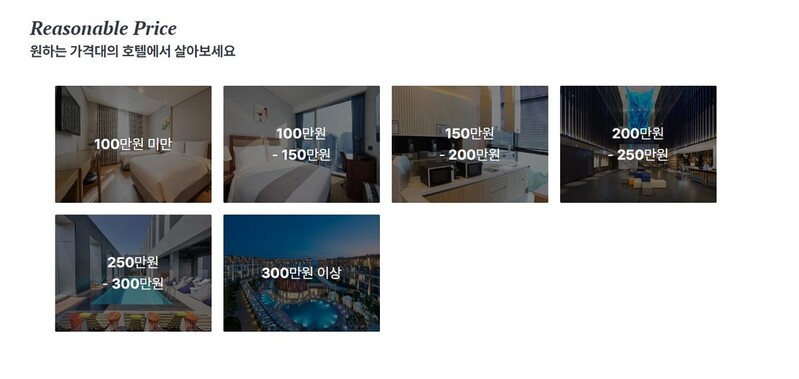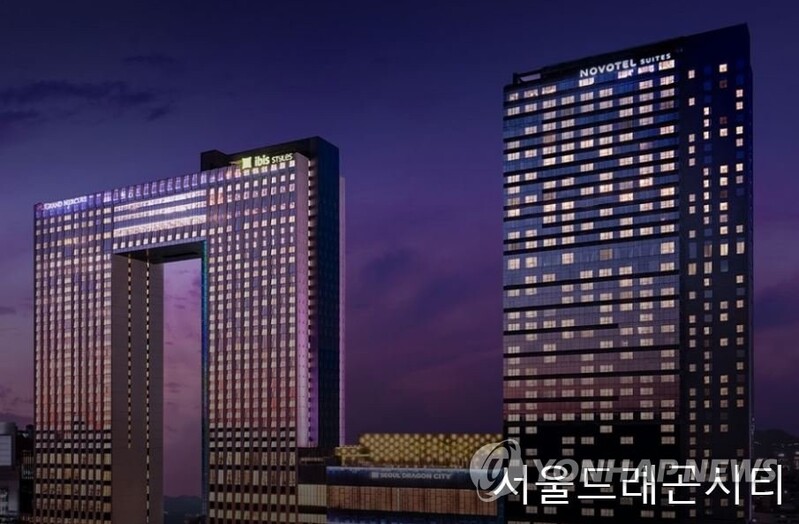 |
| ▲ This photo, provided by the website of "living in hotel", shows a part of their website. (PHOTO NOT FOR SALE) (Yonhap) |
 |
| ▲ This photo, provided by Seoul Dragon City, shows Seoul Dragon City. (PHOTO NOT FOR SALE) (Yonhap) |
SEOUL, July 31 (Yonhap) -- A long-term stay of more than 6 nights in a hotel is called a “hotel long stay.” Recently, such long stays has become a trend in the domestic hotel industry.
After COVID-19, the demand for hotelcation (hotel + vacation) and workcation (work + vacation, enjoying vacation while working) has increased. It is analyzed that a new trend of hotel long stay has emerged after the “one month living” trend.
According to the hotel long stay platform “living in hotel” on Sunday, the transaction amount of long-stay (at least 6 nights) through “living in hotel” from January to July 2022 increased by 247% compared to the same period last year. Monthly active users (MAU) also increased by 162%.
During the same period, the average number of nights per user was 32 days, and users spent an average of 2 million won per month to live in the hotel for a month.
When looking at the transaction amount by hotel levels, 3-4 star hotels had the highest transaction amount.
In partnership with Ramada, Novotel, Lotte City, and Holiday Inn, “living in hotel” is selling a variety of hotel long-stay products from 3-star to 5-star. It is characterized by providing a “hotel tour,” which visits the hotel in advance, as if looking around a house, and inspects the rooms and amenities within 20 minutes.
In line with this trend, the hotel industry is also expanding the sales channels for long stay products.
Seoul Dragon City is a prime example. Seoul Dragon City, located in front of Yongsan Station, has four hotels, namely Novotel Ambassador (5-star), Grand Mercure Ambassador (5-star), Novotel Suite Ambassador (5-star), and Ibis Styles Ambassador (4-star).
Among the hotels in Seoul Dragon City, Grand Mercure Ambassador, a premium residence hotel, has focused on selling long stays. The rate of increase in long-stay (30 nights or more) accommodations at the Grand Mercure Ambassador in early June increased by 70% in 2022 compared to 2021.
Novotel Ambassadors and ibis Styles Ambassadors started selling long stay products after entering “life in hotel” in December 2020 after COVID-19 broke out.
“After COVID-19 broke out, the domestic market had to be developed. It was then when hotels realized that they had to expand the sales channels for long-stay,” said an official from Seoul Dragon City. “It is expected that the influence of domestic long-stay guests will be maintained at least until the first half of 2023.”
Hotels aimed for long-stay customers have also appeared.
Dears Myeongdong (111 rooms), which opened in February 2021, has dedicated facilities for long-stay customers including a shared kitchen, laundry and meeting rooms. Additionally, the long-stay rooms are equipped with individual microwaves and work desks, allowing one to invite acquaintances.
At this hotel, 65% of long-stay guests with 30 nights or more account for 65% of the total stay.
"We have stepped away from the existing hotel management method and combined the advantages of 'co-living (shared residence) + hotel',” explained an official from Dears Myeongdong. “We offer a variety of long stay products ranging from 1.4 million to 1.69 million won per month.”
(This article is translated from Korean to English by Haemin Kim.)
(END)
(C) Yonhap News Agency. All Rights Reserved























